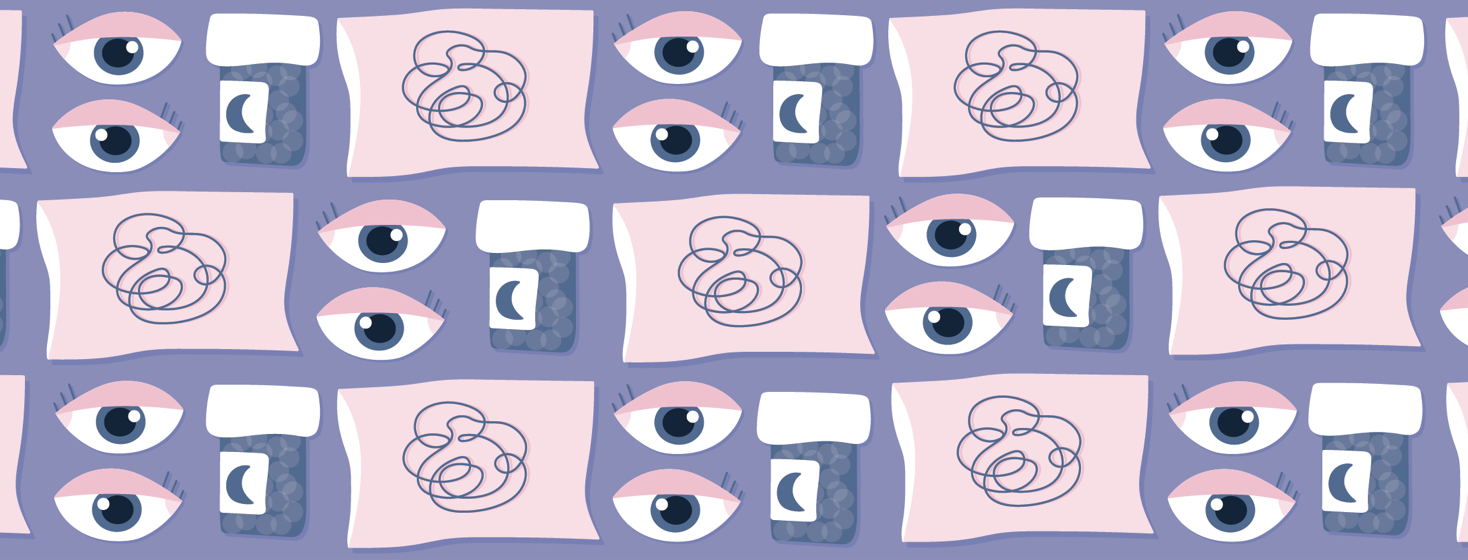Patterns of Insomnia: My Journey Through the Stages
When it comes to insomnia, I’ve dipped my fingers into all the metaphorical pies.
There are many ways of categorising insomnia and the first is simple – short-term or chronic. A diagnosis is made when sleep is disrupted at least 3 nights a week – short-term less than 3 months and chronic for more than 3 months.1
I definitely fit into the chronic category, but with a hefty dose of regular medication, I graduated to short-term. Most nights I do slip into the precious realm of blessed sleep but I can go through periods of time where I have very disrupted patterns despite best practice. Stress, grief, worry, excitement – all these things over-stimulate my brain and return me to a pattern of poor sleep for a while.
Insomnia sleeping patterns
The other way of categorising insomnia is with the sleeping pattern itself.1
- Can’t fall asleep
- Wake too often
- Wake too early
- Poor quality sleep
Trouble falling asleep
For most of my life, I couldn’t fall asleep. I developed pillow panic – just the sight of it would increase my heart rate as I knew I was in for a disturbing hour or two just desperately hoping my brain would switch off for a minute.
Waking too often
I also would wake often – and not always to use the bathroom. Once awake I was back at step one – couldn’t fall asleep. My busy mind going over all the irrelevancies of the day and my best efforts at mindfulness and meditation were inconsistently successful.
Waking too early
I always wake too early. Even with well-treated insomnia, I am an early bird. I dream of sleeping just a couple of hours longer each day. When my meds are working well I sleep 5 to 6 hours – a genuine miracle after a lifetime of wakefulness. But I would still love to get that bonus 2 hours that so many people seem to take for granted.
Poor quality sleep
And poor quality sleep. Well, if you’re reading this article you know what I’m talking about. Even when you’re in bed for 7 or 8 hours, you’ve tossed and turned in a light doze and wake up feeling tired. Never slipping into that deep, restful dreamland we all yearn for.
Insomnia hangover
While it is common for us to sleep less as we get older, I find at 54 I am far less resilient with insomnia hangover than I was even 5 years ago. For years and years, people would say to me, “I don’t know how you cope with so little sleep.” And I would always think, what choice do I have? I have to cope. That’s that. But now I find I can’t cope.
After crossing into the realm of regular sleep, if short-term insomnia strikes I am no longer able to function properly during the day. The dishes pile up. I work from home but end up with a backlog of to-do lists. I can’t cook or clean or catch up for coffee. I can’t sleep either. I just drag a weary body to essential places then loll around wishing things were different.
Understanding my insomnia has helped
I am so aware of the fact I am one of the lucky ones. With good sleep hygiene practices and a good medical treating team, after 53 years of chronic insomnia, I now get some sleep every night. Occasionally I get what I define as a full night’s sleep – 7 hours. But sometimes I wake at 2 AM and wonder how to fill in time until it’s acceptable to be noisy in the house.
Understanding my levels and types of insomnia have helped me. Sometimes it’s just that misery enjoys company. Sometimes it’s understanding how to treat the issue. Knowing sleep patterns is definitely helpful when it comes to talking with medical professionals.
My new outlook on rest
There is one thing I’ve noticed since my new era of pharmaceutically-induced sleep – I am able to rest during the day. As someone with high anxiety and constant hyperarousal, daytime rest was always impossible.
With a lot of cognitive behavioural therapy (CBTi), a mixed bag of mindfulness skills, awareness of lifestyle modifications, and night-time medications, I have learned to rest during the day. I may not be a nanna yet, but I take nanna naps. And I love every blessed minute of rest I get – be it day or night.

Join the conversation